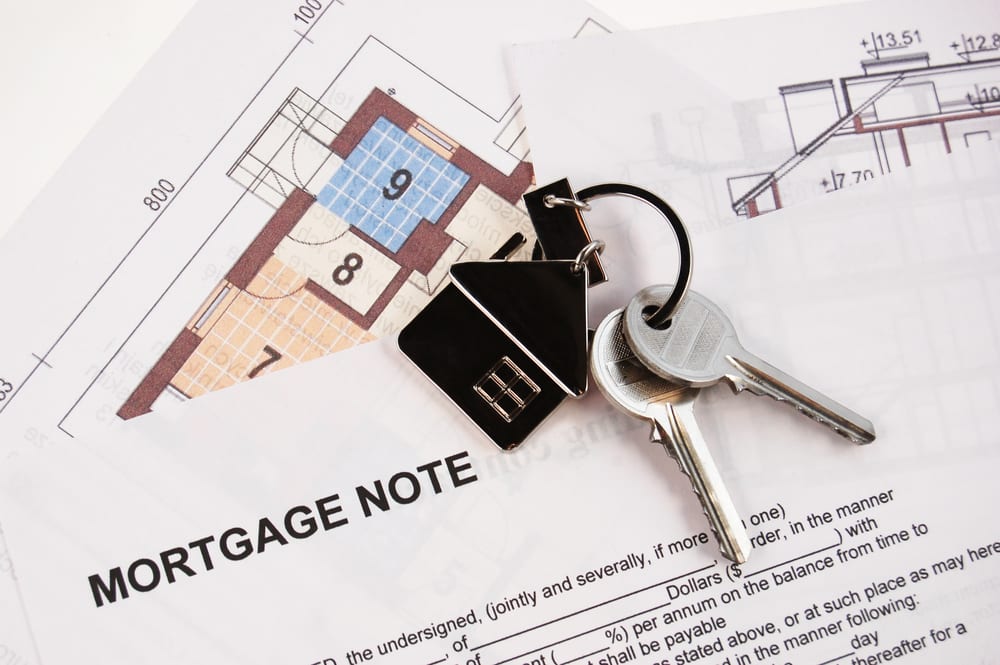
by admin | May 7, 2021 | Mortgage News
When it comes to housing deposits, bigger is better. That said, it’s also important not to overstretch yourself. Here are some points to consider when figuring out how much deposit you can really afford.
What are your overall moving costs?
As a buyer, here are some of the main costs you should consider when moving home:
- Travel to view homes
- Surveying fees
- Conveyancing fees
- Mortgage-administration fees
- Home-moving fees
You’ll also need to think about necessary updates, maintenance and running costs in your new home. Keep in mind that any existing services you use may change their price to reflect your house move. You may also find that some of your existing possessions aren’t suitable for your new home.
In addition to all of the above, it’s advisable to allow yourself a bit of financial “breathing space”. This can give you a bit of room to manoeuvre when life happens. It can also ease your transition into your new home. For example, if you’ve spent a day painting, you may not fancy cooking so you might get a takeaway instead. This can increase your food spend.
What is your financial outlook for the future?
If you want a mortgage, you’re going to need to convince your lender that you can afford it. Separately to that, you, personally, need to think about your financial outlook for the future. In basic terms, there are three questions you need to answer.
Firstly, how much income can you reasonably expect to earn over the next five years or so? Secondly, how do you anticipate that income coming in? For example, will you have a consistent monthly salary or do you expect your income to go up and down? Thirdly, what factors will influence your finances? For example, are there any major life events coming up?
The answers to these questions will help you decide what level of savings you need. This in turn will guide you as to how much money you can afford to put towards buying a new home. Remember, however, that the cost of buying a new home goes beyond the deposit. Per the previous comments, resist any temptation to overstretch yourself.
How much money can you afford to put away now?
If you plan to save for your deposit via instant-access savings accounts, then, by definition, you’ll be able to access your money if you need it. If, however, you plan to use some other route, for example, bonds or the stock market, then you may have to lock your money away for a time. What’s more, if you go down the investment route, you put your capital at risk.
Even if you’re using instant-access savings accounts, you may find it easier to make plans if you have a realistic idea of how much of your savings you can keep over the long-term. Obviously, even the best-laid plans can be derailed by what life has in store. That said, you can mitigate this risk by making sure that you have appropriate insurance cover.
In the real world, saving up for a deposit (or anything else) is partly a matter of income and partly a matter of focus. Your income will determine how much of a surplus you have after paying your essential expenses. Your level of focus will determine how much of your disposable income goes toward your deposit.
Keep in mind that building a deposit is an exercise in financial management. It’s not a race. There are no prizes for getting to the “finish line” before anyone else. You just have to decide for yourself how much you want to save for a house versus how much you want to use your money in other ways.
Please contact us for any more information.
Think carefully before securing other debts against your home. Your home may be repossessed if you do not keep up repayments on your mortgage
For savings and investments, we act as introducers only

by admin | Oct 18, 2019 | Mortgage News
Over the last few years, there’s been a big marketing effort on the part of the “go-direct” brands. The irony of this is that actually these brands are not encouraging you to “go direct”, they are encouraging you to use their website to make your decision instead of either actually going direct or going to a proper, human mortgage broker, who can give people professional advice customised to their situation. To see how this works in practice, let’s look at the three different situations.
The “go-direct” brands
The “go-direct” brands are basically, affiliate-marketing sites. That means they get paid a commission for referring people who then go on to become customers. In other words, they work on exactly the same basis as the mortgage brokers they advise you to avoid using. They simply use computer algorithms to try to replicate the knowledge and expertise of a financial professional. Even though many jobs are currently being replaced by computers and there may come a time when artificial intelligence can do as good a job as a highly-skilled human, that time is still far off and as, when and if it does come, the “go-direct” sites are still likely to offer limited options in comparison with going to a human mortgage broker for the simple reason that some companies refuse to work with them for various reasons, many of which revolve around the fact that these sites encourage people to compare deals on headline price rather than looking at the specifics of the offer and the overall value it could provide.
Genuinely going direct
Genuinely going direct can be a perfectly feasible option, if you know your way around the mortgage market. If, however, you don’t you can spend a whole lot of time and energy looking for the best deal and still wind up not finding it or finding it and not being accepted for it. An often-overlooked fact about mortgage brokers is that they will not only make sure that they only suggest deals for which you have a decent chance of being accepted, but they will help to make sure that your application ticks all the right boxes (literally and metaphorically) to maximise your chances of being accepted and they may even have contacts with lenders which they can use to help turn a borderline case into a yes.
Going via a mortgage broker
There are basically two sorts of mortgage broker. One sort charges a direct fee to the client. The other works on commission. Neither sort is right or wrong and neither is better or worse than the other. Both sorts of mortgage broker will be working on behalf of the client and aiming to get them the best, possible mortgage deal. Their continued success depends on having a constant stream of satisfied customers (ideally customers who are satisfied enough to recommend other people). Mortgage brokers are, essentially, the average person’s guide through the labyrinth of the mortgage market. They can be very useful even if you’re “the perfect buyer” and hence in a solid position to find a good deal for yourself. Mortgages may carry relatively low-interest rates (meaning as compared to standard consumer debt) but they are usually for large amounts and hence the difference between a good deal and a great deal can add up to be an awful lot of money over the years. If you already know you are a less-than-perfect buyer and/or you are aiming to buy a more niche property (or to build your own home), then the more you should think about going to a mortgage broker rather than trying to go direct.
Your property may be repossessed if you do not keep up repayments on your mortgage.

by admin | Sep 13, 2019 | Mortgage News
These days, you don’t necessarily have to go to an interview to get a mortgage the way you usually do to get a job, but other than that the processes are, perhaps surprisingly, very similar. In a recruitment scenario, the recruiter is essentially asking themselves three basic questions:
- Can you do the job?
- Will you do the job?
- Will you fit in?
This is also what mortgage lenders want to know, so your mortgage application should aim to convince them that in your case the answer to all three questions is a solid yes.
Cover your basics, fill in the application the way you are asked
Employers have long used various tricks to work out which job seekers actually read adverts and follow instructions and which do not. One of those tricks is to specify how an application is to be submitted. In the old days it was often colour of ink (black not blue), these days it can be to include a particular word in your cover letter. Mortgage lenders aren’t usually looking to weed out candidates who can’t follow instructions, but they are likely to be using computer systems to process part, if not all, of an application and hence they may specify how data is to be entered into each field. If they do, make sure you follow the instructions. Also, make sure that any data you enter does completely answer the question, otherwise the best you can hope for is that a potential lender requests further information. They may, however, just decline you because you come across as unsuitable.
Can you do the job?
Remember that these days mortgage lenders are obliged to look beyond your headline income figures and think about your likely ability to repay a mortgage over the long term. This means you want to do anything and everything you can to convince them that you will be able to bring in an income over the lifetime of your mortgage. For example, if you had plans to upskill yourself and/or to start a side hustle with a view to bringing in extra money (at some point if not immediately), then it would be a great idea to set the ball rolling before you even applied for your mortgage.
Will you do the job?
A mortgage lender is going to look for evidence of how well (or badly) you have managed your money in the past, which means that they’re going to take a close look at your credit record. Do everything you can to make this look impressive. If you’ve had a chequered financial history, time may be your friend. Negative markers such as late payments drop off after a certain time. If you know you have them, you might want to check when that time is and see if you can hold off applying for a mortgage until after it is past. Once it is past, make sure it is removed correctly. Even if you have a perfect financial history, it’s still a good idea to check your credit record for mistakes (they happen) or to see if you can make any small touch-ups which could help you (like making sure you’re on the electoral register).
Will you fit in?
Does your application fall within the lender’s “comfort zone”? In blunt terms, a lender needs to think about how easy it would be to recoup their money in the event of a foreclosure. Standard, residential properties in popular locations tend to be relatively easy to sell on. Niche properties and properties in more out-of-the-way locations can be rather more of a challenge to sell. Similarly, buyers actually living in the properties, or at least in the UK, are easy to trace, whereas expat buyers may be perceived as rather more of a risk.
Your property may be repossessed if you do not keep up repayments on your mortgage.




Recent Comments